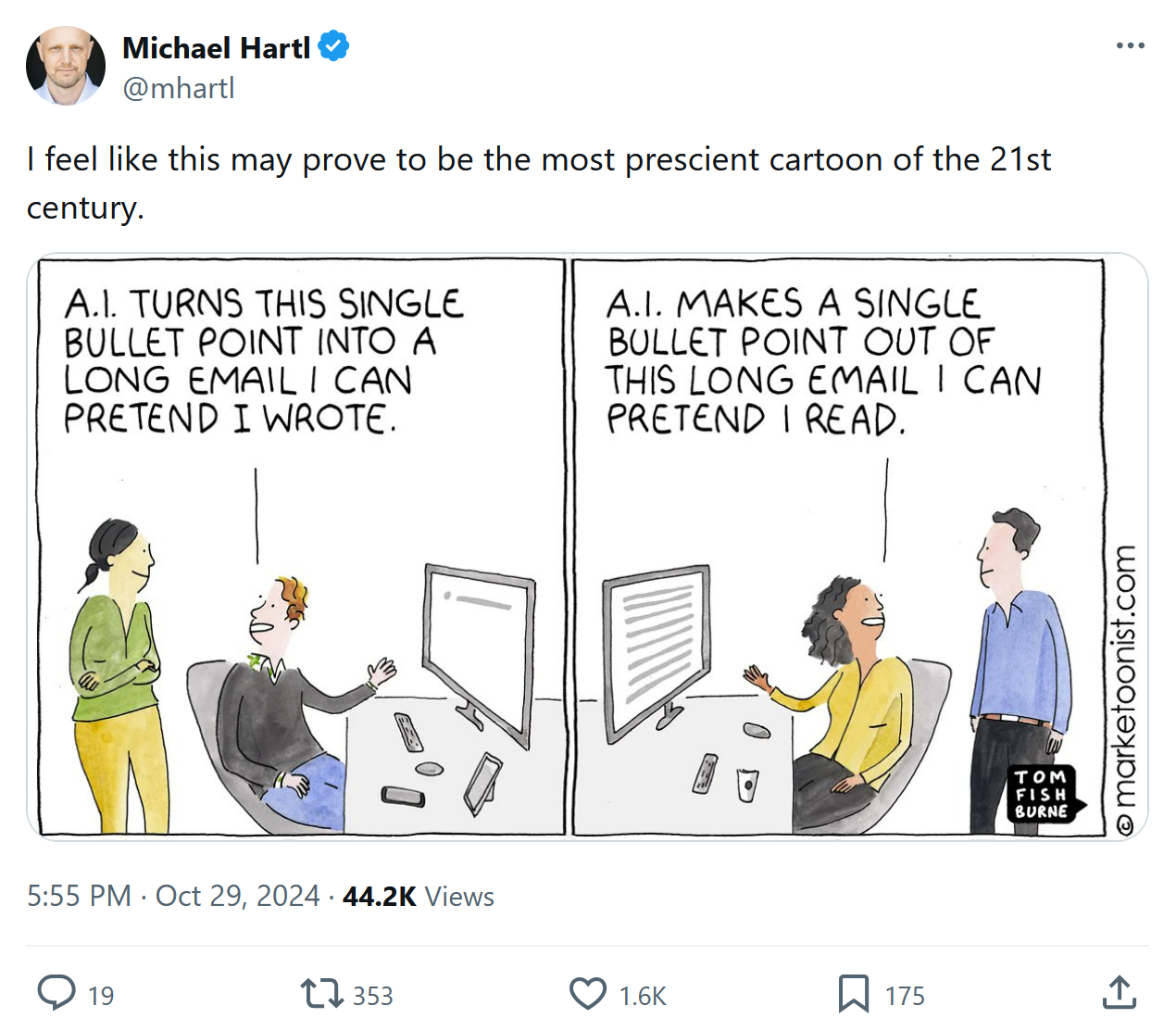Our paltry diet of screen-based entertainment helps us realize that the acceptance of AI has been coming for a while. Long ago, we expected our national officeholders to be men and women who had read deeply and reflected more than most on our lives together and what might enhance them. Some time ago we got used to our office holders paying speechwriters, press secretaries, and ghostwriters. More recently, we got used to their reading off of teleprompters. And soon we will accept their wearing earphones and glasses with text written into them. Gazing toward the day after tomorrow, we espy the transhumanist dream of fusing human and machine, which would have us listening to a speaker’s “neural upload.”
It’s all part of automation, and of automation we have become grateful. When shown a platoon of workers with shovels digging a canal by a man who was proud of the high employment this provided, Milton Friedman famously asked why the men weren’t instead equipped with only spoons. It was a memorable quip; automation, be it with the “earth-moving machines” for which Hobbes pleaded, or with printers and QR readers, has indeed produced great efficiencies. These things deliver the goods and services that free up our time and resources.
But to what end? Back-breaking and lung-blackening tasks were taken up under the lash of necessity, and so were gladly given over to machines when they could be, thanks to human ingenuity and modern science. Those who performed them often did so with the hope that their children wouldn’t have to. But what of activities that cultivate the mind and enrich the soul? Can we, should we, not pause before we give these, too, over to machines? What of what we still call the “fine arts”—painting, sculpture, architecture, design, music composition and performance, poetry—arts that are distinctively human and that ennoble or beautify our lives? Was the leisure to engage in these arts not the very reason we sought, through technology, to overcome material necessities?
And what of those fine arts that go beyond this and offer us compelling insights into the human condition: storytelling, novel writing, play writing, short story writing, essay writing? What, finally, of philosophizing? Do we want machines doing for us what is distinctively human, reducing us, by their alleged convenience, to puppets, hollowed-out shells of human beings, mannequins of mediocrity, ersatz versions of a once exalted form of being? Do we really want to farm out to machines our capacity to think, to invent, to discover and rediscover? Are we prepared to allow the organs of our intellectual and spiritual lives to waste away while we drink the dreck that calls itself the product of intelligence?
We are crossing a threshold. Should we not pause to consider whether the house is habitable?
It’s thought-provoking and rather scary stuff; tell your iPhone 16 to read the whole thing:

